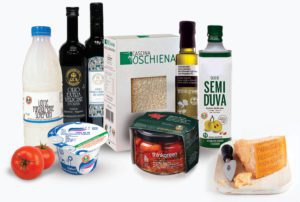Certification of Products from
Sustainable Farming
What are the benefits of sustainable farming?
Over the last 60 years, the increase in the world’s population and the consequent growth in demand for animal protein have led to an intensification of farming systems that leave an enormous footprint, causing significant damage to our natural environment resulting in water scarcity, land degradation, deforestation and climate change.
Sustainable farming and food production systems, promoting climate-resilient, environmentally-sustainable methods, have great potential to preserve our valuable natural resources. By following simple methods such as recycling nutrients and not using agricultural chemicals, sustainable farming systems can have broad impact, enabling us to feed our growing population without causing irreparable environmental change.
How do you become a certified farmer?
Sustainable farming certification is a process and involves procedures by which a third party gives assurance that a product process or service conforms to specified requirements and certification standards, and should be based on a range of inspection activities and carried out by a competent and recognised certification body.
Friend of the Earth has developed a set of standards for certification of farming products in order to minimise the negative effects of intensive farming operations, providing a tool for the farming industry to respect the environment, thus preserving natural resources for the future.
Friend of the Earth certified products and services are subject to strict independent audits that verify both environmental and social standards.
Requirements
Requirements that companies must meet to obtain Friend of the Earth certification for sustainable farming include:
- A well organised environmental management procedure;
- A system of protection of the ecosystem and the implementation of areas dedicated to the conservation of wild flora and fauna;
- The reduction of the use of chemically synthetic substances for the production of fodder and the use of FOE certified feed;
- Respect for animal welfare beyond the limits of the law;
- Periodic checking on the state of the structures and animals’ psychophysical conditions for stress evaluation;
- The rational use of water and soil preservation;
- The use of energy from renewable sources;
- The use of manure and output as fertilizers and to produce energy (biogas);
- Control of greenhouse gas emissions and the implementation of systems to reduce them;
- Social responsibility.
Technical Documents
As a first step you need to download, compile and return to info@friendoftheearth.org the preliminary information Questionnaire (PIF):
- The PIF does not oblige the applying company to commit to proceeding with the audit phase.
- Any checks before the audit are free of charge.
- All information will be kept strictly confidential.




